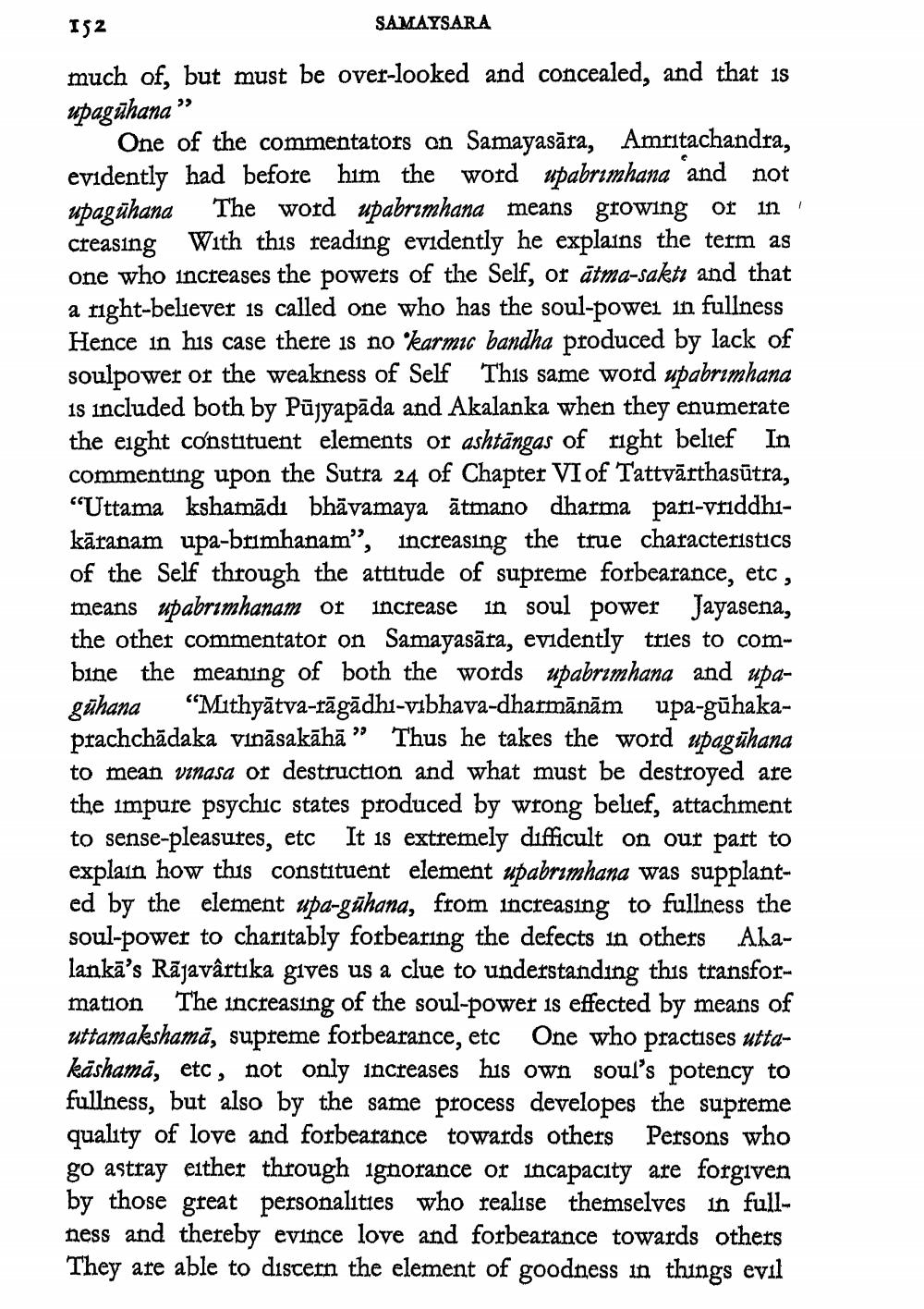________________
152
SAMAYSARA
much of, but must be over-looked and concealed, and that is
upagūhana"
One of the commentators on Samayasāra, Amritachandra, evidently had before him the word upabrımhana and not upagūhana The word upabrımhana means growing or in creasing With this reading evidently he explains the term as one who increases the powers of the Self, or åtma-saktı and that a right-believer is called one who has the soul-power in fullness Hence in his case there is no 'karmic bandha produced by lack of soulpower or the weakness of Self This same word upabrımhana is included both by Pūjyapāda and Akalanka when they enumerate the eight constituent elements or ashtāngas of right belief In commenting upon the Sutra 24 of Chapter VI of Tattvārthasūtra, “Uttama kshamādi bhāvamaya ātmano dharma pati-vriddhikāranam upa-brimhanam”, increasing the true characteristics of the Self through the attitude of supreme forbearance, etc, means upabrımhanam or increase in soul power Jayasena, the other commentator on Samayasāra, evidently tries to combine the meaning of both the words upabrımhana and upagühana “Mithyātva-rāgādhi-vibhava-dharmānām upa-gūhakaprachchädaka vināsakāhā” Thus he takes the word upagūhana to mean vinasa or destruction and what must be destroyed are the impure psychic states produced by wrong belief, attachment to sense-pleasures, etc It is extremely difficult on our part to explain how this constituent element upabrımhana was supplanted by the element upa-gühana, from increasing to fullness the soul-power to charitably forbearing the defects in others Alalankā's Rājavârtika gives us a clue to understanding this transformation The increasing of the soul-power is effected by means of uttamakshamä, supreme forbearance, etc One who practises uttakäshamă, etc, not only increases his own soul's potency to fullness, but also by the same process developes the supreme quality of love and forbearance towards others Persons who go astray either through ignorance or incapacity are forgiven by those great personalities who realise themselves in fullness and thereby evince love and forbearance towards others They are able to discern the element of goodness in things evil




